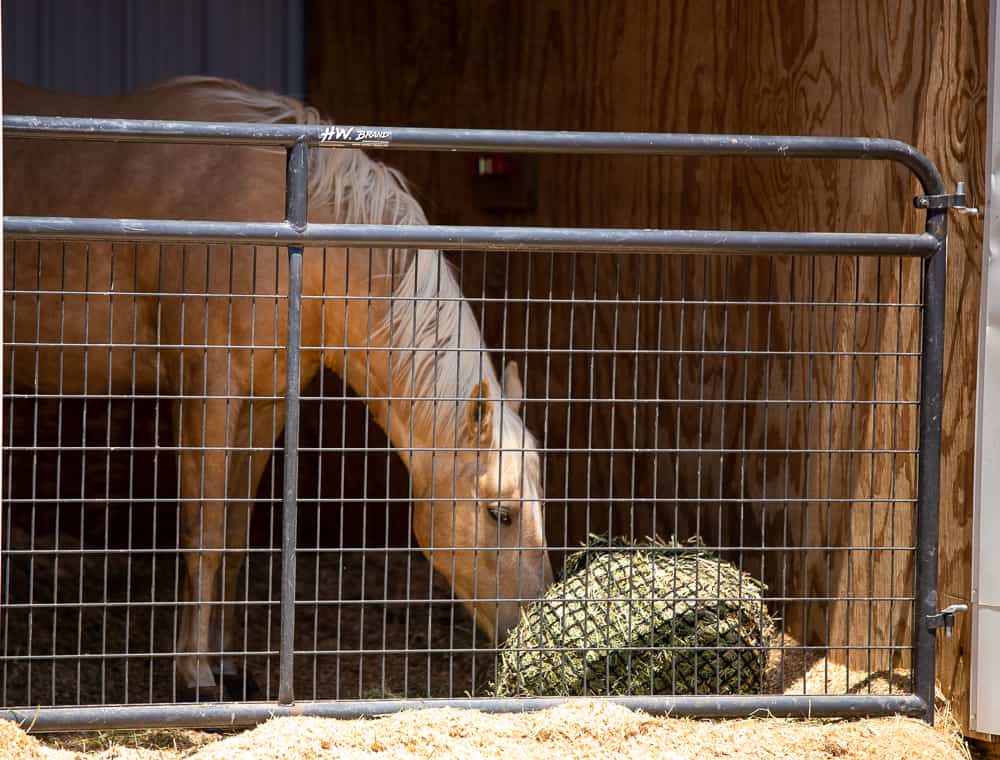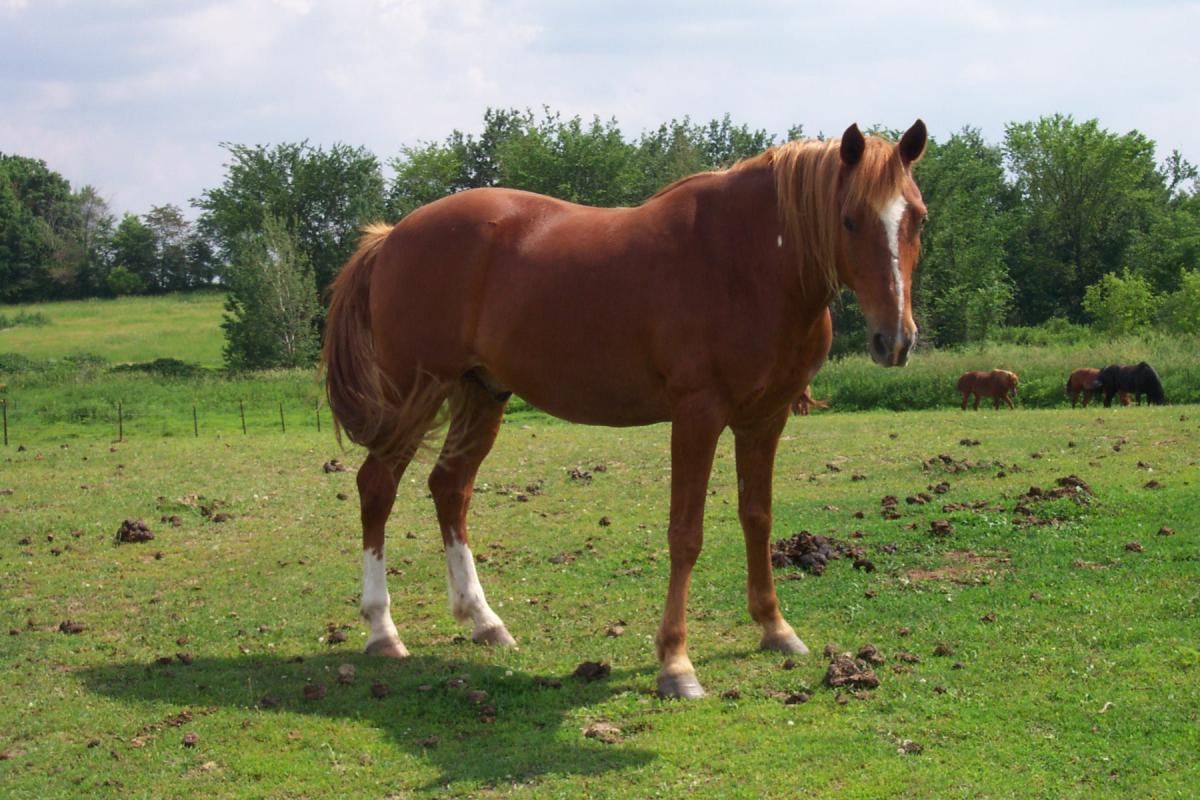Advanced Topics In Horse Nutrition Health Conditions Biology Diagrams In book: Horse Pasture Management (pp.81-91) Authors: The food chain (tropic levels or food web) is composed of primary producers who fix energy Plants are the primary producers in the One group of horses was allowed to graze for 17 hours per day, while the other was restricted to seven hours grazing in a 10-acre pasture. The horses at pasture for 17 hours per day traveled

On less productive sites, a mature horse might require 2-2.5 acres of pasture or 1-1.5 acres on productive, well-managed pasture during the summer. When pastures are stocked more than one horse per acre, the pasture cannot support feeding as its primary role—the pasture becomes an exercise area and feeding is secondary. Pasture-based horse production is a near miraculous process. After an egg from a mare is fertilized by a sperm cell from a stallion, the fertilized egg develops into a foal. Plants gather sunlight, fix solar energy, and take up soil minerals to make food for the grazing horses. The food chain (trophic levels or food web) is composed of I had a black bear chase my horses, I got them out of the pasture, called the conservation officer and he shot it. He said the bear is at the top of the food chain, however they don't usually attack & eat horses, but they do protect their "claimed" territory and will chase & possibly injure a horse if it can't get away & out of the bear's area.

Introduction to pasture ecology Biology Diagrams
Overseeding can encourage growth of more horse-friendly grass varieties. Good pasture management may reduce your feed costs as well as improve biodiversity and reduce the environmental impact, as the soil below our grassland is a large carbon store. A chain harrow towed behind a quad is a common sight, but you could also get a contractor in A well-managed pasture can have huge payoffs in terms of horses enjoying a high-quality, nutritious diet that reduces the feed bill as well as providing an outlet for equine exercise and improved emotional health. Plus, a good stand of healthy grass will have strong roots to hold soil in place, preventing erosion from wind or rain. The first series of studies using Rutgers University's Ryders Lane Environmental Best Management Practices Demonstration Horse Farm in New Brunswick, N.J., aimed to determine the effects of rotational grazing on pasture, soil condition, and horse condition, along with integration of novel forage options to maximize the summer grazing season.
